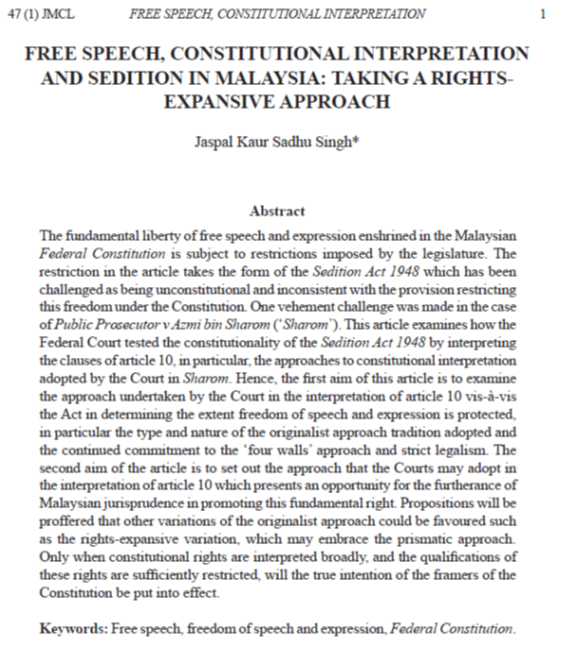Free Speech, Constitutional Interpretation and Sedition in Malaysia
Taking a Rights-Expansive Approach
Keywords:
Free speech, freedom of speech, freedom of speech and expression, Federal Constitution, MalaysiaAbstract
The fundamental liberty of free speech and expression enshrined in the Malaysian Federal Constitution is subject to restrictions imposed by the legislature. The restriction in the article takes the form of the Sedition Act 1948 which has been challenged as being unconstitutional and inconsistent with the provision restricting this freedom under the Constitution. One vehement challenge was made in the case of Public Prosecutor v Azmi bin Sharom (‘Sharom’). This article examines how the Federal Court tested the constitutionality of the Sedition Act 1948 by interpreting the clauses of article 10, in particular, the approaches to constitutional interpretation adopted by the Court in Sharom. Hence, the first aim of this article is to examine the approach undertaken by the Court in the interpretation of article 10 vis-à-vis the Act in determining the extent freedom of speech and expression is protected, in particular the type and nature of the originalist approach tradition adopted and the continued commitment to the ‘four walls’ approach and strict legalism. The second aim of the article is to set out the approach that the Courts may adopt in the interpretation of article 10 which presents an opportunity for the furtherance of Malaysian jurisprudence in promoting this fundamental right. Propositions will be proffered that other variations of the originalist approach could be favoured such as the rights-expansive variation, which may embrace the prismatic approach. Only when constitutional rights are interpreted broadly, and the qualifications of these rights are sufficiently restricted, will the true intention of the framers of the Constitution be put into effect.
Downloads



